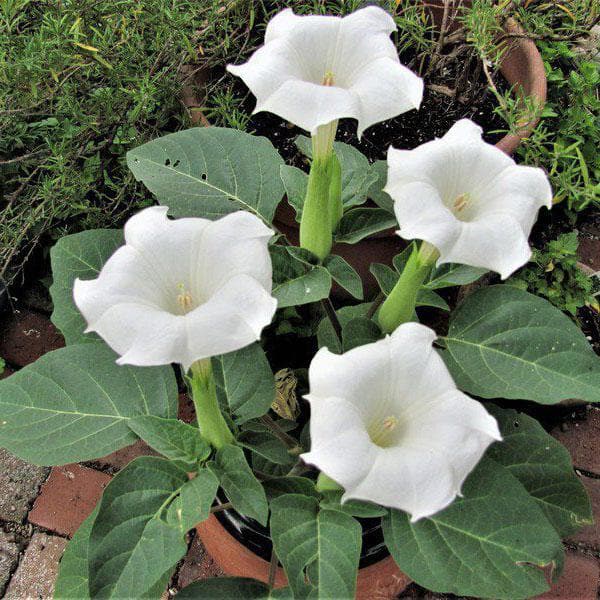
Datura, Dhatura - Plant
(MRP Inclusive of all taxes)
- Shipping ₹79 for entire order
- Country of origin: India

(MRP Inclusive of all taxes)
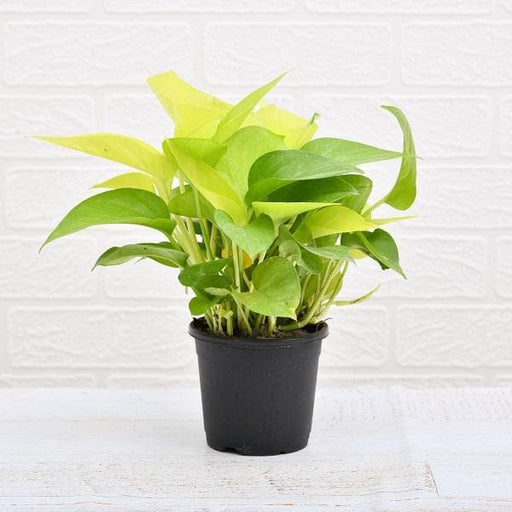 Save 29%
Save 29%
Air Purifier Money Plant with Pot The Air Purifier Money Plant, also known as Pothos or Epipremnum aureum, is a stunning indoor plant that...
View full details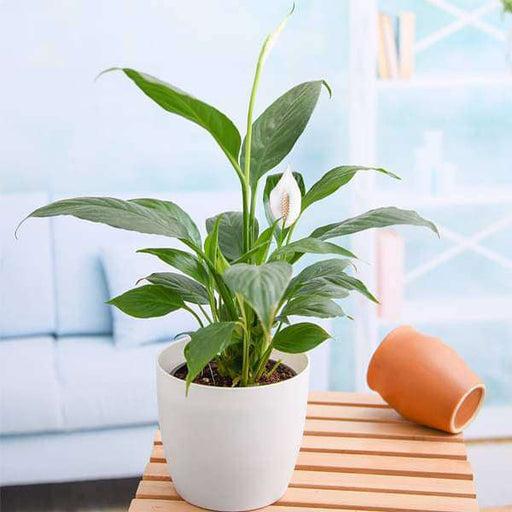
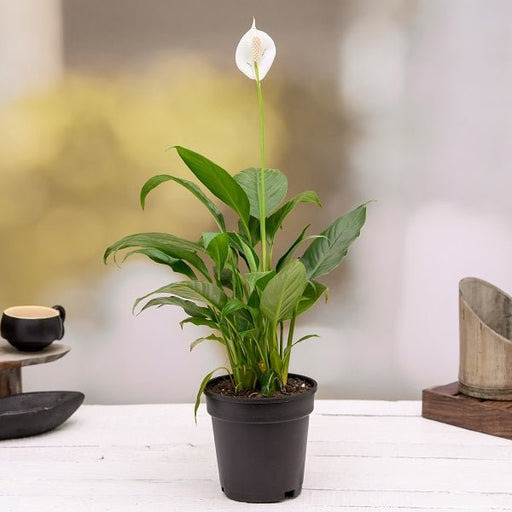 Save up to 15%
Save up to 15%
Peace Lily, Spathiphyllum - Plant The Peace Lily, scientifically known as Spathiphyllum, is a stunning houseplant celebrated for its elegant white...
View full details
 Save 25%
Save 25%
Jasminum sambac, Mogra, Arabian Jasmine - Plant Jasminum sambac, commonly known as Mogra or Arabian Jasmine, is a fragrant flowering plant...
View full details
 Save 18%
Save 18%
Combo Constituents Includes the Parijat Tree (Night-Flowering Jasmine), a culturally significant plant with fragrant flowers. Description The Pari...
View full details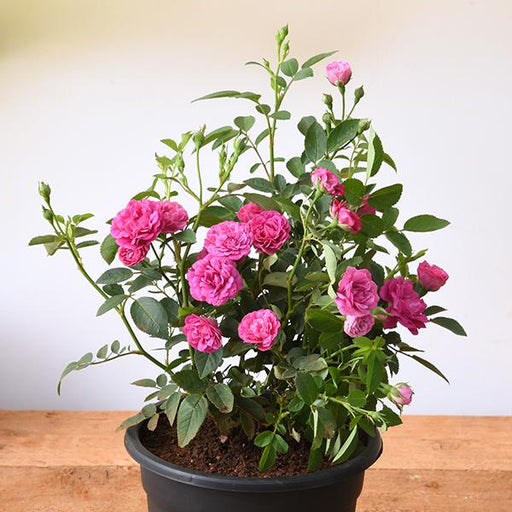
 Save 25%
Save 25%
Miniature Rose, Button Rose (Any Color) - Plant The Miniature Rose, also known as the Button Rose, is a charming and compact flowering plant that ...
View full details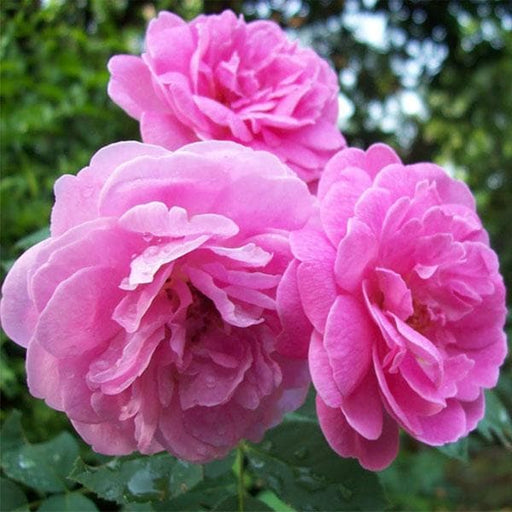 Save 25%
Save 25%
Damascus Rose, Scented Rose (Any Color) - Plant The Damascus Rose, also known as Rosa damascena, is a timeless symbol of beauty and romanc...
View full details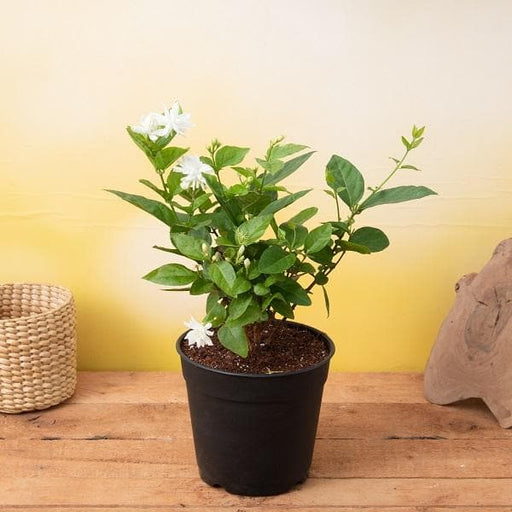
 Save 17%
Save 17%
Beautiful Fragrant Mogra, Arabian Jasmine Plant with Pot The Beautiful Fragrant Mogra, also known as Arabian Jasmine (Jasminum sambac), is...
View full details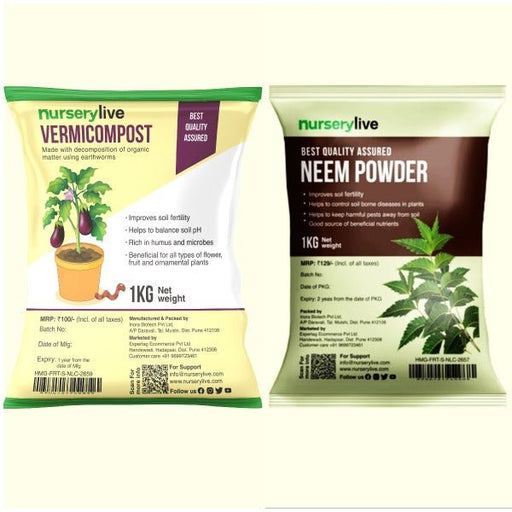 Save 15%
Save 15%
Pack of Vermicompost and Neem Cake for House Plants Transform your indoor garden with our premium Pack of Vermicompost and Neem Cake, spec...
View full details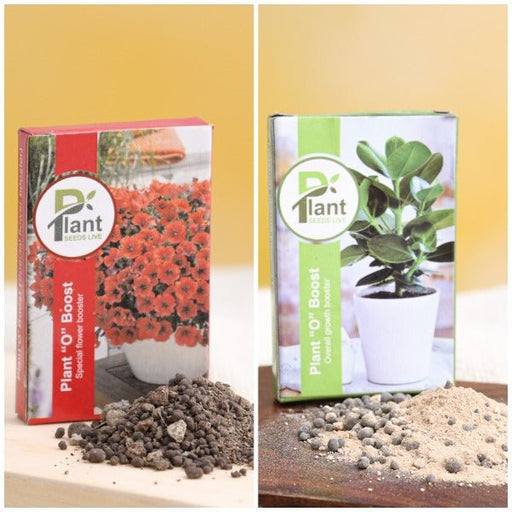
Pack of Plant Growth and Flower Boosters Unlock the full potential of your garden with our Pack of Plant Growth and Flower Boosters! This ...
View full details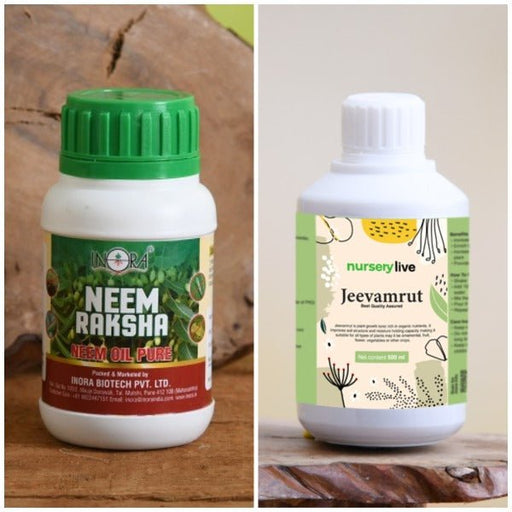 Save 38%
Save 38%
Combo of Jeevamrut and Neem Raksha for Easy Growth and Protection of Houseplants Transform your indoor garden with our exclusive combo of ...
View full details Save 22%
Save 22%
Plant Nutrients Kit (Pack of 16) for a Healthy Garden Transform your garden into a lush paradise with our Plant Nutrients Kit, featuring 1...
View full details Save 16%
Save 16%
Combo of Top Plant Fertilizers Elevate your gardening game with our exclusive Combo of Top Plant Fertilizers, featuring two bags of premiu...
View full details Save 24%
Save 24%
Pack of 4 Additives to Make Soil Healthy and Nutrient Rich Transform your garden into a thriving ecosystem with our Pack of 4 Additives de...
View full details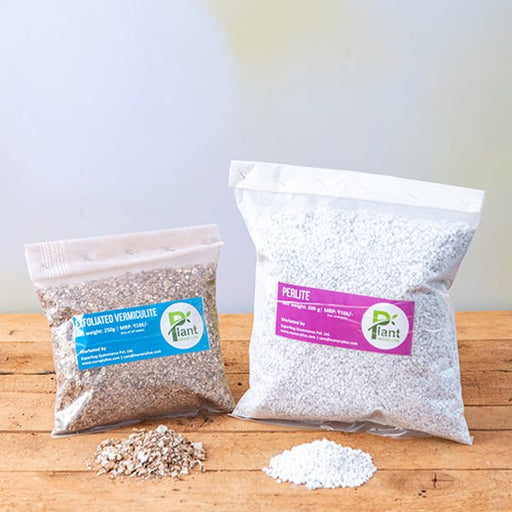 Save 30%
Save 30%
Transform your gardening experience with our premium Combo of Perlite and Vermiculite. This unique blend is designed to enhance soil aeration and ...
View full details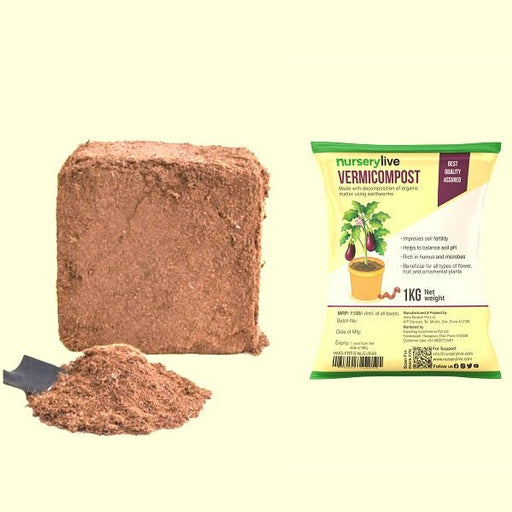 Save 27%
Save 27%
Combo of 2 Vermicompost and Cocopeat - Enrich Your Soil Naturally! Transform your garden into a thriving ecosystem with our Combo of 2 Ver...
View full details
 Save 35%
Save 35%
Best 6 Plants for Perfect Indoor Garden Transform your living space into a lush oasis with our curated collection of the Best 6 Plants for a...
View full details
 Save up to 50%
Save up to 50%
Mini Succulent Garden Pack Transform your space with our Mini Succulent Garden Pack, featuring a delightful collection of 4 any variety beautiful s...
View full details
 Save 30%
Save 30%
5 Best Fragrant Plants Transform your garden or indoor space into a fragrant paradise with our curated selection of the 5 Best Fragrant Plants. Th...
View full details
 Save 24%
Save 24%
Set of 2 Bonsai Looking Grafted Adeniums Transform your indoor or outdoor space with our exquisite Set of 2 Bonsai Looking Grafted Adenium...
View full details Save 45%
Save 45%
Top 4 Die Hard Succulents Pack Transform your indoor or outdoor space with our Top 4 Die Hard Succulents Pack, featuring a curated selecti...
View full details
 Save 30%
Save 30%
5 Best Indoor Plants Pack Transform your living space into a lush oasis with our '5 Best Indoor Plants Pack.' This carefully curated collection fe...
View full details
 Save 25%
Save 25%
Set of 4 Evergreen Air Purifier Plant Pack Transform your indoor space into a lush, green oasis with our Set of 4 Evergreen Air Purifier Pla...
View full details| SrNo | Item Name |
|---|---|
| 1 | Datura, Dhatura - Plant |
Datura, commonly known as Dhatura, is a captivating plant belonging to the Solanaceae family. Renowned for its striking trumpet-shaped flowers and intoxicating fragrance, this perennial herb is often found in tropical and subtropical regions. With its rich history in traditional medicine and folklore, Datura has been both revered and feared for its psychoactive properties. Its unique beauty and intriguing characteristics make it a fascinating addition to any garden.
What sets Datura apart is its dual nature; while it is admired for its ornamental value, it also possesses potent alkaloids that have been used in various cultural rituals. The plant's ability to thrive in diverse environments, from arid deserts to lush gardens, showcases its resilience and adaptability. Datura's enchanting blooms open at dusk, attracting nocturnal pollinators, making it a magical sight in evening gardens.
Special features of Datura include its large, fragrant flowers that can reach up to 10 inches in length, and its ability to produce seeds that can remain viable for years. This plant is not only a visual delight but also a subject of fascination for botanists and herbalists alike.
Datura can be invasive in some regions, outcompeting native flora. However, when managed responsibly, it can contribute to biodiversity and provide habitat for various pollinators. Its ability to thrive in poor soils makes it a resilient choice for challenging landscapes.
Ah, the Datura flower, nature's very own drama queen! With its large, trumpet-shaped blooms, it’s like the diva of the plant world, demanding attention and admiration. These flowers come in shades of white, purple, and yellow, and they bloom at night, making them the perfect nocturnal showstoppers. But beware! This beauty is not just a pretty face; it’s also packed with alkaloids that can lead to some rather wild experiences if ingested. So, while you might be tempted to take a selfie with this enchanting flower, remember to keep your distance and admire it from afar. After all, not all that glitters is gold, and not all that blooms is benign!
Datura seeds are like the tiny, mischievous children of the plant world, hiding a world of potential within their spiky shells. These little nuggets are not just for planting; they’re also the source of the plant’s notorious reputation. Containing the same alkaloids that make the flowers so alluring, these seeds can lead to a rollercoaster of effects if consumed. Think of them as the ultimate party crashers—inviting chaos and confusion to your otherwise calm garden soirée. So, while you might be tempted to collect these seeds for your next gardening project, remember that with great power comes great responsibility. Handle with care, or you might just find yourself in a botanical adventure you didn’t sign up for!
The uses of Datura are as varied as the personalities at a family reunion. Traditionally, this plant has been used in medicine, rituals, and even as a natural insect repellent. Some cultures have harnessed its psychoactive properties for spiritual journeys, while others have turned it into a cautionary tale. It’s like the Swiss Army knife of plants—versatile but potentially dangerous. Whether you’re looking to ward off pests or explore the depths of your consciousness, Datura has got you covered. Just remember, with great versatility comes great caution. So, before you dive into the world of Datura, make sure you’ve done your homework and know what you’re getting into!
just because something is beautiful doesn’t mean it’s safe. Keep your distance, admire from afar, and let this plant be a reminder that not all that glitters is gold.
Cultivating Datura is like trying to tame a wild stallion—exciting but fraught with challenges. This plant thrives in warm climates and well-drained soil, making it a favorite among adventurous gardeners. However, don’t let its beauty fool you; Datura can be a bit of a diva in the garden. It requires regular watering and plenty of sunlight to truly shine. Plus, its rapid growth can lead to a jungle-like atmosphere if not kept in check. So, if you’re up for the challenge, grab your gardening gloves and prepare for a wild ride. Just remember to keep an eye on this beauty; you wouldn’t want it to take over your garden like an uninvited guest!
Datura varieties are like the quirky characters in a sitcom—each with its own unique charm and personality. From the classic Datura stramonium to the exotic Datura inoxia, there’s a variety for every taste. Some boast stunning flowers, while others are known for their potent seeds. Each variety comes with its own set of quirks and care requirements, making them a delightful challenge for plant enthusiasts. Whether you’re looking for a showstopper for your garden or a conversation starter for your next dinner party, Datura varieties have got you covered. Just remember, with great variety comes great responsibility—choose wisely, and don’t forget to read the fine print!
The Datura habitat is like the VIP lounge of the plant world—exclusive, warm, and a bit wild. This plant thrives in sunny, well-drained areas, often found in gardens, roadsides, and even disturbed lands. It loves to bask in the sun, soaking up those rays like a beachgoer on a summer day. However, its penchant for spreading can turn it into an unwelcome guest in some ecosystems. So, while Datura may enjoy its sunny spots, it’s essential to keep an eye on its growth to prevent it from taking over. After all, every party needs a bouncer, and in the world of gardening, that’s you!
The history of Datura is as rich and complex as a well-crafted novel. Used by ancient civilizations for medicinal and spiritual purposes, this plant has woven its way through the tapestry of human culture. From its role in traditional medicine to its appearances in folklore and rituals, Datura has been both revered and feared. It’s like the enigmatic character in a story—captivating yet dangerous. As you delve into its history, you’ll discover tales of its use in shamanic practices and its cautionary role in herbal medicine. So, grab a cup of tea, settle in, and prepare to be enchanted by the storied past of this fascinating plant.
Datura in folklore is like the mysterious figure lurking in the shadows of a fairy tale—both enchanting and a little bit scary. Many cultures have woven tales around this plant, often highlighting its dual nature as a healer and a harbinger of chaos. From witches’ brews to tales of transformation, Datura has played a role in various myths and legends. It’s the ultimate plot twist in the story of nature—beautiful yet dangerous. So, as you explore the folklore surrounding Datura, remember that every story has a lesson. Approach this plant with respect, and you might just uncover the secrets it holds.
the journey can be unpredictable. While some seek enlightenment, others may find themselves lost in a haze of confusion. So, if you’re considering using Datura for spiritual exploration, make sure you’re prepared for the ride. It’s not just a walk in the park; it’s a trip through the wild side of consciousness!
Datura and gardening is a match made in botanical heaven—if you’re up for a little adventure. This plant can add a touch of drama to any garden with its striking flowers and lush foliage. However, it’s not all sunshine and rainbows; Datura can be a bit of a handful. With its rapid growth and tendency to spread, it can quickly become the diva of your garden, demanding attention and care. But fear not! With a little patience and the right approach, you can cultivate this beauty while keeping it in check. So, roll up your sleeves, embrace the challenge, and let Datura bring a touch of wild elegance to your gardening escapades!
Datura, also known as Dhatura, is a notorious plant that’s both beautiful and dangerous. With its trumpet-shaped flowers and toxic properties, it’s like the diva of the plant world—stunning but best admired from a distance. Just remember, not all that glitters is gold, especially in the garden!
Oh, darling, that’s a hard pass! Datura is like that friend who looks fabulous but has a dark side. Consuming any part of this plant can lead to hallucinations, paralysis, or worse. So, unless you’re auditioning for a horror movie, keep your distance and stick to your salad greens!
Datura thrives in warm climates, strutting its stuff in gardens, roadsides, and even wastelands. It’s like the overachiever of the plant kingdom, popping up where it pleases. Just be careful where you plant it; you might end up with a botanical diva taking over your backyard!
Historically, Datura has been used in traditional medicine and rituals, but let’s be real—it’s a risky business! Some cultures have used it for pain relief or as a sedative, but with great power comes great responsibility. Always consult a professional before trying to channel your inner herbalist!
Absolutely! Datura is the poster child for “looks can be deceiving.” Every part of this plant contains toxic alkaloids that can cause serious health issues. It’s like a beautiful trap—one wrong move, and you’re in for a wild ride. Admire it from afar, and leave the risky business to the thrill-seekers!
Spotting Datura is like finding a celebrity in a crowd. Look for its large, trumpet-shaped flowers, spiky seed pods, and broad leaves. The flowers can be white, purple, or yellow, making it a real showstopper. Just remember, if it looks too good to be true, it probably is!
Sure, if you’re feeling adventurous! Datura can be grown indoors, but it requires plenty of sunlight and space to stretch its legs. Just be prepared for its dramatic flair; this plant loves to steal the spotlight. Keep it away from pets and kids, though—safety first in your indoor jungle!
The side effects of Datura are like a rollercoaster ride you didn’t sign up for. Hallucinations, confusion, and even paralysis can occur if ingested. It’s a wild trip, but not the fun kind. If you’re looking for a thrill, try a theme park instead—much safer and way more enjoyable!
The legality of Datura varies by location, much like fashion trends. In some places, it’s perfectly legal to grow, while in others, it’s a no-go. Always check your local laws before planting this botanical beauty. You don’t want to end up on the wrong side of the law for a pretty flower!
Caring for Datura is like dating a high-maintenance partner. It loves full sun, well-drained soil, and regular watering, but don’t drown it! Prune it to keep it in shape, and watch out for pests. With the right attention, it’ll reward you with stunning blooms—just don’t expect it to do your laundry!
Yes, Datura has a long history in various cultural rituals, often associated with spirituality and divination. However, using it requires caution, as its effects can be unpredictable. It’s like inviting a wild card to your party—exciting but potentially chaotic. Always approach with respect and knowledge!
If you’ve touched Datura, wash your hands immediately and avoid touching your face. If you experience any unusual symptoms, seek medical attention pronto! It’s like a bad date—better to cut your losses and get out before things escalate. Stay safe and keep your distance from this dramatic plant!